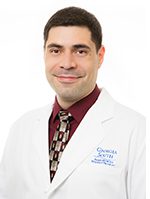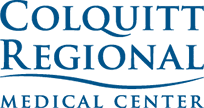

Family Medicine Resident
Colquitt Regional Medical Center
According to the CDC, heart disease is the leading cause of death in the United States, taking the life of one person approximately every 34 seconds. Signs and symptoms are not only wide-ranging but can appear unexpectedly, quickly becoming critical. Therefore, many are encouraged to visit their Family Physician regularly to detect an individual’s potential risk of heart disease.
What is heart disease and why is it important?
Heart disease is a broad term used to describe disorders that affects the heart’s structure or function. This can include disease of the heart valves, irregular heartbeats known as arrhythmias, and blockage of the blood vessels providing oxygen to the heart. Diseased or damaged blood vessels surrounding the heart is the most common cause of heart disease and is the leading cause of death in the United States and the world according to both the Centers for Disease Control & Prevention and the World Health Organization.
Often physicians are asked questions such as ‘Who gets it? How do I prevent it? What are some of the risk factors for heart disease?’ by their patients. While some risk factors such as age, gender and family history cannot be changed; there are ways to reduce the risk of heart disease, giving you control of your heart health. This would include methods such as maintaining a healthy bodyweight, managing stress, and avoiding tobacco and alcohol use. Many risk factors can be controlled through lifestyle choices, diet, and exercise but also methods such as blood pressure control, keeping adequate blood sugar levels and cholesterol levels through monitoring with regular checkups.
What are the signs and symptoms of heart disease?
Heart disease is more common than some may expect, affecting both women and men with the risk increasing with age. While there are some common symptoms such as chest pain (especially during activity), some common symptoms of heart disease include chest, neck or arm pain, palpitations (the feeling of heart skipping or fluttering). There are some more subtle symptoms such as weakness, lightheadedness, nausea, cold sweats, and shortness of breath which could explain why some people wait too late to seek medical attention. Left untreated, heart disease can progress to heart failure, fatal irregular heartbeats or even heart attacks (damage to heart muscle due to lack of blood flow).
If you have one or more of these heart disease symptoms mentioned above, you should probably seek further medical evaluation. I recommend you see your family physician to get screened for risk factors. Together we can reduce your risk factors for heart disease. Heart disease is common and those later in age have a higher risk. Knowing the signs, symptoms and risk factors may save your life, see your family doctor to find out.







